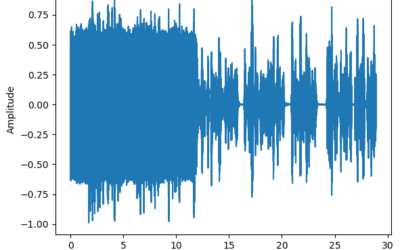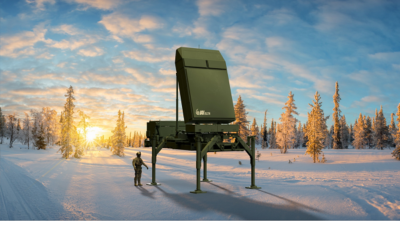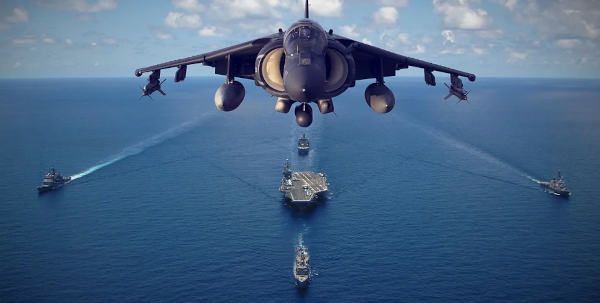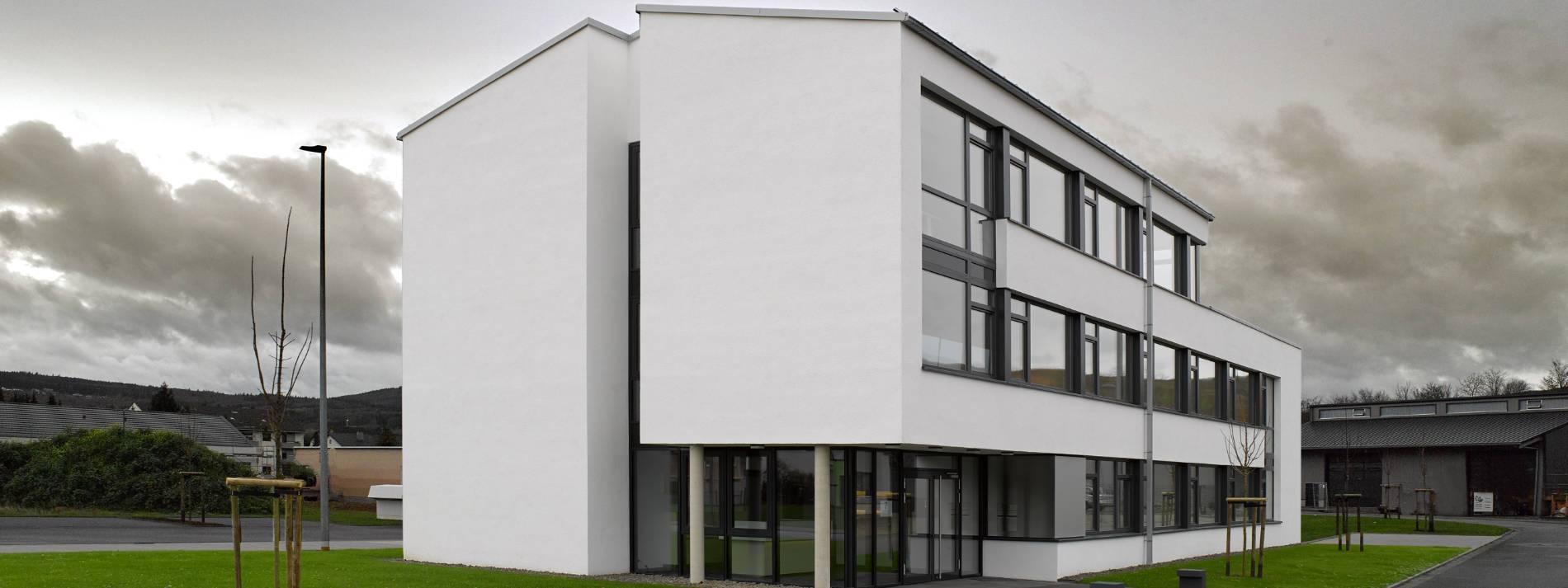Timor Leste finally agrees to receive two ‘Guardian’ class boats from Australia
On 19 April, Australian shipbuilder Austal announced that it had finalised its contract with the federal government to provide two Pacific Patrol Boats for Timor Leste. The contract is worth AUS$29.7 million ($23million) and is the latest addition to the Pacific Maritime Security Programme (PMSP) to which Australia committed AU$1.5billion ($1.2billion) for the replacement of the current ‘Pacific’ class patrol boats of 12 Pacific Island Countries (PIC): Papua New Guinea (PNG), Fiji, Tonga, Solomon Islands, Tuvalu, Kiribati, Samoa, Vanuatu, Federated States of Micronesia, Palau, Republic of Marshall Islands, and Cook Islands.
The replacement of the ‘Pacific’ class patrol boats with the newly designed ‘Guardian’ class patrol boats was announced in April 2016 and is known as Project SEA 3036 Phase 1 under the PMSP. “Project SEA 3036 Phase 1 represents a significant investment by Australia in regional security, and will provide participating countries with sovereign assets to protect their maritime resources,” an Australian Defence Spokesperson told tMONCh. The ‘Guardian’ class, to be built to contemporary Australian commercial standards and ‘purpose-designed’ in close consultation with participating countries, will gradually replace the ‘Pacific’ class ships that were donated in the first iteration of the programme in 1983 and which will be returned to Australia for disposal.
The addition of the two vessels agreed upon with Timor Leste will bring the total of ‘Guardian’ class patrol boats to be built by Austal and delivered by Australia to the PICs to 21. Although this was an option from the beginning of Project SEA 3036 Phase 1, Timor Leste’s entrance into the programme was not a foregone conclusion.
“Timor Leste has also been invited to participate in the programme and receive two vessels as a new member, although Defence has yet to receive a formal response from the Government of Timor Leste,” the Defence Spokesperson told MONCh one year ago. The reasons behind this significant delay in reality lie behind the quarrel that Timor Leste and Australia have been locked in since the country’s independence in 2002 over the sharing of oil and gas reserves revenues in the Timor Gap; and it is no coincidence that Timor Leste’s approval to be part of the programme came shortly after an agreement was finally reached at the Permanent Court of Arbitration in The Hague the first week of March this year.
Without going into too much details (more in-depth information can be found here), for the past 16 years Australia had been contesting Timor Leste’s claims that the maritime boundaries originally drawn between the two countries for the Timor Gap resulted in an unfair distribution of the oil and gas reserves found in the Timor Sea. While Australia sought to uphold the agreement made with Indonesia in 1972, which divided revenues from existing fields in its favour, Timor Leste argued that the median line applicable under the UN Convention on the Law of the Seas (UNCLOS) was fairer (indeed, it places most of the reserves back into Timor Leste’s exclusive economic zone). Similarly, as the resources of the Timor Gap are quickly depleting, the two countries have been locked into disagreement over the sharing of the as-yet-untapped Greater Sunrise Field.
The decision made early March this year finally settled the dispute. In relation to the Timor Gap, the argument of the median line was finally upheld, while Timor Leste’s royalties from the Greater Sunrise Field have increased from 50 per cent under the original agreement defended by Australia, to 70 or 80 per cent, depending on whether the pipeline goes to Timor Leste or Darwin. With this new decision from the Permanent Court as well as Australia’s display of goodwill in accepting and upholding the decision, one of the most contentious points between the two countries is on its way to be resolved (even if the issue of the pipeline remains a sticky wicket for Timor Leste); as such, it is not surprising that Timor Leste finally accepted the offer of two patrol boats to contribute to its maritime operations.
The PICS will receive their new patrol boats as follows: Cook Islands (1 vessel); Federated States of Micronesia (2 vessels); Fiji (2 vessels); Kiribati (1 vessel); Palau (1 vessel); Papua New Guinea (4 vessels); Republic of the Marshall Islands (1 vessel); Samoa (1 vessel); Solomon Islands (2 vessels); Timor Leste (2 vessels); Tonga (2 vessels); Tuvalu (1 vessel); Vanuatu (1 vessel).
The table below highlights the main improvements made to the new class (as indicated by the Defence Spokesperson): The table below highlights the main improvements made to the new class (as indicated by the Defence Spokesperson):
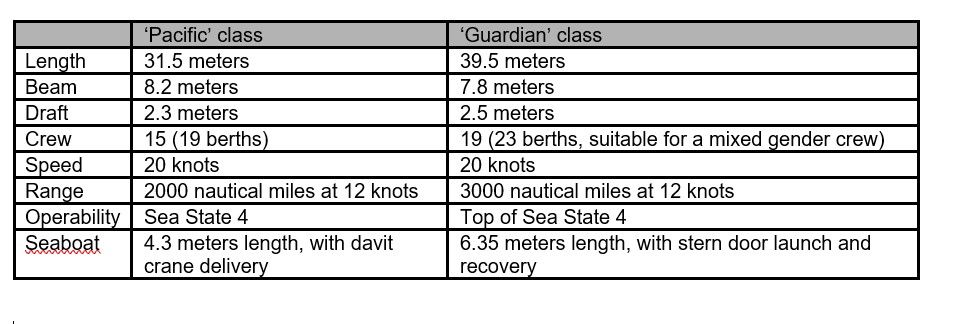
According to the Defence Spokesperson, the first new vessel will be delivered to PNG in October 2018, to replace HMPNGS Rabaul, and the last vessel will be delivered to Timor Leste in the second half of 2023. According to the Defence Spokesperson, the first new vessel will be delivered to PNG in October 2018, to replace HMPNGS Rabaul, and the last vessel will be delivered to Timor Leste in the second half of 2023.
AV


